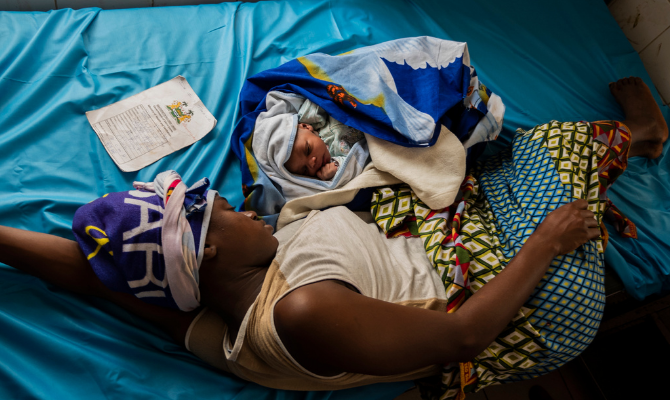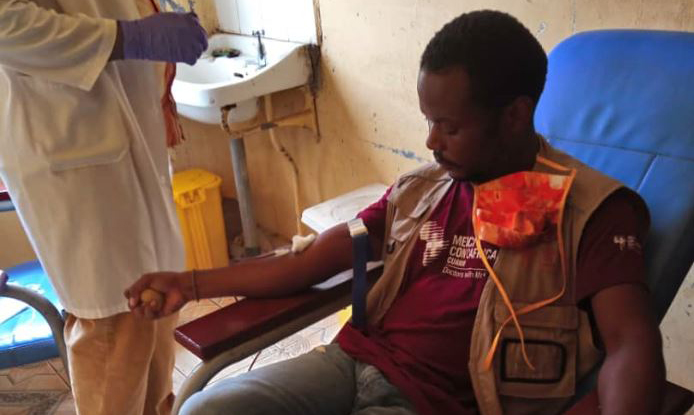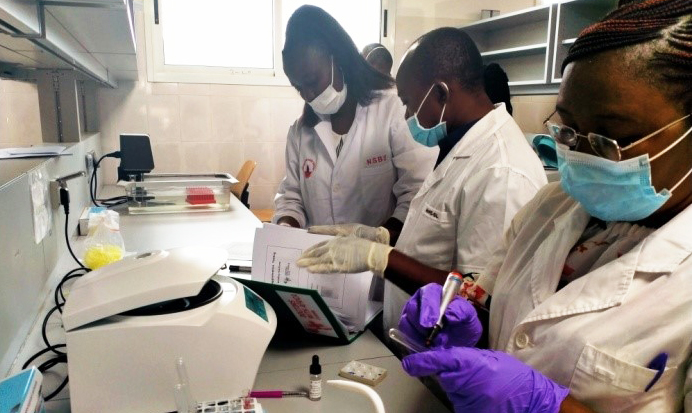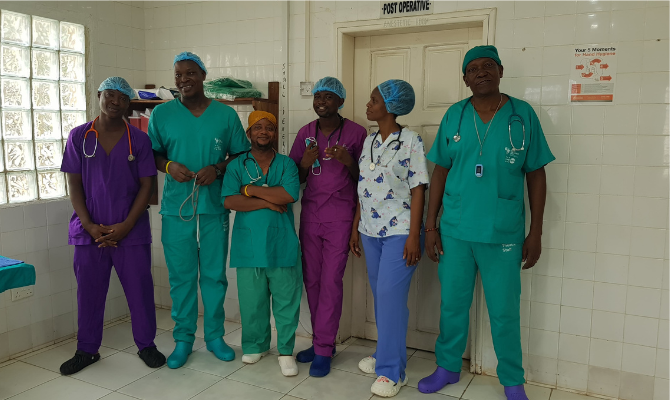The “Saving Lives” programme, whose closing workshop took place yesterday, was launched in 2018 in Sierra Leone with the aim of supporting the Government of the country in combating mortality and reducing maternal, child and neonatal morbidity. Specifically, the programme aims to strengthen the capacity and expertise of the Ministry of Health and authorities at national and district levels to provide quality health services to mothers and children, according to WHO standards. An intervention extended to 14 districts, supporting 14 district hospitals, involving 14 District Health Management Teams and 92 Community Health Centres across the country. The programme, funded by the Foreign Commonwealth and Development Office, was implemented by Doctors with Africa Cuamm together with partners from the UNITE consortium of NGOs led by the International Rescue Committee (IRC).
As part of the ‘Saving Lives’ programme, Cuamm acted as technical leader for obstetric emergencies and neonatal care, and worked to consolidate a mentorship programme to improve the knowledge and skills of health workers.
“Each regional manager recruited 2 clinical mentors, for a total of 28 per district. After recruitment, an assessment was conducted to ascertain the level of knowledge of each mentor, who then underwent training in health care,” says Steven Ngoma, a Cuamm doctor who works as an advisor for obstetric emergencies and neonatal care. The mentor holds regular sessions with his mentees, students, on a weekly basis with a minimum of three visits per health facility. Currently, in Pujehun district, there are 16 mentees, 8 of whom are already trained and able to handle emergencies as demonstrated by the decrease in maternal deaths and obstetric complications in the hospital”.
Cuamm then went on to strengthen the management of the blood bank supply chain.
“The Cuamm blood bank specialist did an assessment in the 14 districts to understand the challenges faced at district level in providing safe blood to patients and to analyse which refrigerators are best suited to the context of Sierra Leone where there is often a lack of electricity to power them,” Steven continues. Twelve solar blood bank refrigerators were purchased, delivered and installed in 12 district hospitals (Rokupa, Kambia, Bo, Makeni, Port Loko, Kailahun, Lungi, Kenema, Kabala, Pujehun and Koidu). District technicians were trained in the management of these refrigerators and laboratory staff were trained in the safe and appropriate use of blood’.
The workshop was therefore an opportunity to highlight and share with partners and stakeholders the results achieved and the good practices learned in recent years. It was also an opportunity to reflect on the progress made and on future prospects, also to strengthen cooperation between the supporters of the programme to improve the health of mothers and children.





